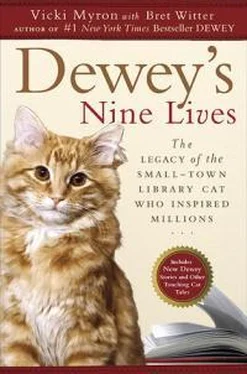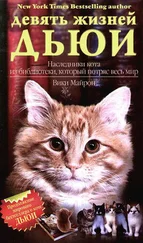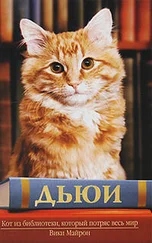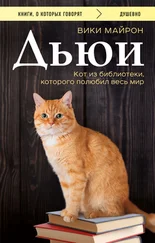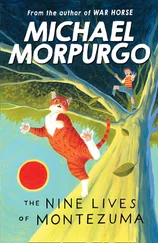His next task was to hook it all up. The drive shaft, crank shaft, wheel axles, steering column, everything had to work together. Glenn scrubbed out and rebuilt the connections bolt by bolt and joint by joint. Two years into the project, the key turned in the ignition, the engine revved, and the wheels rolled. He took the car to the corner store. He drove it to a divorced-fathers meeting, his guitar shoved in the backseat, and showed it off to his daughter Jenny, although he wouldn’t take her for a drive. Not yet—the car was still too dangerous. There were brake lights but only a partial electrical system, no paint on the sanded body. It may not have been pretty—not yet—but the Studebaker could breathe again.
A few weeks later, Glenn was under the dashboard, humming to himself and working on the wiring, when he felt something drop onto his chest. He looked up—nearly banging his head on the underside of the dash—straight into the eyes of an orange and white cat. The kitten was small, probably six or seven weeks old, and he was staring at Glenn with his head cocked to the side. Glenn had no idea where the kitten came from, but there was something about the color of his fur that reminded him of the Studebaker when they pulled it out of the weeds.
“Well, hey, Rusty, how are you?” he said, petting the kitten softly on the head.
The cat nuzzled Glenn’s palm. Then it went back to staring. Finally, it lay down on Glenn’s chest and began to purr. After a minute, Glenn shrugged and went back to work, the banging of tools and Rusty’s rolling purr the only sounds in the empty garage.
The next night, the kitten was waiting when Glenn arrived. When he held out his hand, the cat walked over and rubbed against it. “Good to see you again, Rusty,” Glenn said. Rusty looked at him with his head cocked, then meowed. “All right, all right,” Glenn said. “I hear you.” When Glenn slid under the dash, Rusty once again jumped on his chest and curled up for a nap. The next night, he was there again. After a week, Glenn realized the kitten was sleeping in the Commander, waiting for him to arrive. He started offering him sandwich meat or bites of his snacks. Rusty sniffed everything avidly; he ate most things aggressively.
“Want to come to my house, Rusty?” Glenn asked one night. He had taken to talking to Rusty like an old friend while he was tinkering. Rusty had gone from staring with that curious head tilt to talking back. The cat always seemed to have something to say.
“Not interested?” Glenn asked when Rusty didn’t follow him out the door at the end of the night. “That’s fine. I’ll see you tomorrow.”
Glenn had a way with animals. As a child, he tried to bring home every stray that crossed his path. Jumper, an energetic Labrador, lasted only a few days before Glenn’s father took her to a friend’s farm. Glenn found a terrier bleeding on the side of the road and carried it to his basement. He gave it water and bandages, and when it survived the night, he named the dog Rocky. A year later, his old owners spotted Rocky playing with Glenn and reclaimed their dog. Soon after, Spook followed Glenn home. When Glenn’s parents moved twice without telling him—once to an apartment in the same building, once to a house down the block—it was Spook’s barking that told Glenn where to go. In Texas, he even befriended the lion owned by his friend (the lion later went to a zoo, but it was the 1970s; I guess lions lived in suburban Dallas houses back then), and the two of them would ride around together in Glenn’s Pontiac Grand Prix, the lion’s head hanging out the window on one side, his tail hanging out the other side.
So Glenn wasn’t surprised when, a few nights after his first invitation, Rusty followed him home. Unfortunately, Glenn’s mother already owned a cat. A mean, ornery, standoffish cat. The year before, Glenn had found and rescued it after five weeks trapped in an abandoned cistern—it must have licked moisture from the walls and eaten bugs to survive, which is a great story for another time—but still, that cat wouldn’t do him any favors. There was no way, just from pure territorial cussedness, it was letting Rusty into the house. Rusty was a good-size kitten, and he was the only one of the two cats with claws, but he wasn’t a fighter. Not from fear or submission, he just . . . he didn’t have an aggressive personality. He was a “live and let live” kind of cat.
Glenn apologized to Rusty, told him he could go back to the garage with the Commander, but Rusty decided to settle on the porch. He was always there when Glenn went to work, and he was always there when he came home in the evening. After dinner, they would walk together to the garage to work on the Studebaker; Glenn even considered, once or twice, bringing him to a divorced-dads meeting. That summer, the city started major repairs on Court Street, the large road beside Glenn’s mother’s house, so Rusty and Glenn got in the habit of walking nine blocks through the construction zone to Bill’s beer bar. Rusty waited outside while Glenn grabbed a drink. Half the time, when Glenn came out, Rusty had made a friend.
“This your cat?” the woman would ask—and it was almost always a woman.
“Sure is.”
“He is so cute. And friendly.”
“Yep,” Glenn said. “That’s Rusty. He’s a cool cat.”
Eventually, autumn arrived, and the days got shorter. Court Street reopened to traffic, making it too dangerous for Rusty’s walks. Glenn joined a band, just a few old friends jamming out the blues, and started spending a few nights away every week. Rusty took to jumping on the porch railing of the house, then onto the kitchen window frame to stare at the warm rooms inside. Every night, as he prepared for bed, Glenn saw Rusty watching him. When they made eye contact, the big orange cat always started meowing and scraping his paw on the glass.
“We’ve got to let him in, Mom,” Glenn said. “It’s cold out there.”
Glenn’s mom wouldn’t hear of it, not with the way that cat of hers was behaving. So when a house came up for rent two blocks away, Glenn moved out. The new house was another version of his monk’s cell, a small, unfurnished place, but at least Glenn had a roommate this time. He left a window open for Rusty, which the big cat used only when Glenn was gone. When Glenn was home, the cat always hung around. And he was especially partial to people food. Everything Glenn prepared, Rusty sniffed. If he liked the smell, he had to try it. If he liked the taste, he whined until Glenn gave him a plateful. After the dishes were washed, Glenn usually lay down on the sofa so that Rusty could climb up and knead his back with his claws. It was the world’s best massage after a hard day of work.
At his mother’s house, Glenn had played his guitar every night in bed. Half the time, he’d wake up in the morning and find the guitar cradled in his arms. “That guitar became my best friend,” Glenn told me once.
Maybe, if you want to get psychological, that’s why Rusty hated the guitar. At first, as soon as Glenn picked it up to practice a few songs, Rusty was out the window.
“It’s only rock and roll,” Glenn would call after him, laughing as he hit the first chord.
Eventually, Rusty stuck around. Whenever Glenn pulled the guitar out of its case, he sauntered over and stepped inside. Then he’d bat at the lid until it slammed shut. Glenn wasn’t sure what the cat did in there, but as long as he played guitar, Rusty stayed in the case. As soon as Glenn opened the case to put his guitar away, Rusty jumped out. When Glenn went to bed, Rusty always climbed in beside him.
Even when Rusty got lazy and stopped accompanying him to the garage, Glenn kept working, painting the Studebaker matte black, not flashy but definitely cool. He still didn’t trust all the systems, which had a tendency to misfire, but he no longer worked obsessively on the car either. Instead, Glenn spent more evenings in the backyard with Rusty. The rental was a shotgun close to the street, but the backyard was full of trees, flower beds, and Rusty’s favorite: butterflies. At two years old, Rusty was pushing twenty pounds, and he was a gentle giant, too. He might hurt a fly, but not butterflies. On the rare occasions he snatched one out of the air, he always let it go. When a tree limb broke during a storm, Glenn secured it at an angle so burly Rusty could climb for a better view. He loved to sit in the branches and watch the birds, then stare over the fence into the neighbor’s yard. Rusty knew every blade of grass in the lawn, but he never stepped off the property. Not one foot.
Читать дальше
